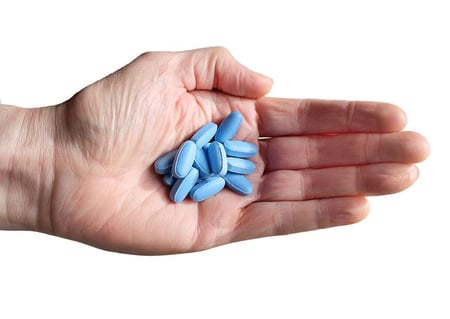Brenzavvy, a Type 2 Diabetes Drug, Available for Less Than $50 Month
By Susannah Chen
 Brenzavvy is a lower-priced type 2 diabetes drug that was FDA approved last year. It poses no safety risk to the heart or blood vessels, a new study confirms.
Brenzavvy is a lower-priced type 2 diabetes drug that was FDA approved last year. It poses no safety risk to the heart or blood vessels, a new study confirms.
There’s good news for anyone in need of an affordable blood sugar-lowering medication for type 2 diabetes.
A paper in the journal Diabetes, Obesity and Metabolism has found that Brenzavvy (bexagliflozin), a type 2 diabetes drug that has a significantly lower monthly price than other competitors in its drug class, has a safe cardiovascular profile.
The new meta-analysis – a statistical review of data from multiple rigorous independent trials – confirms that the medication, which was FDA approved in the US in July 2023, has been found to be safe on the heart and blood vessels, even in people with diabetes who are at high risk for future cardiovascular disease.
“These data…should give physicians confidence in the overall safety profile of Brenzavvy,” said Dr. Mason W. Freeman, MD, one of the study’s lead authors and a director at Massachusetts General Hospital and professor of medicine at Harvard Medical School.
The study, which was funded by Brenzavvy manufacturer TheracosBio, found that cardiovascular safety results were consistent with those of other medicines in the same drug class: The hazard ratio of major adverse cardiovascular events (MACE) such as stroke, heart attack, and cardiovascular death is similar to those found in other approved SGLT-2 inhibitors such as canagliflozin (Invokana), dapagliflozin (Farxiga), empagliflozin (Jardiance), and ertugliflozin (Steglatro).
What is Brenzavvy?
Brenzavvy (bexagliflozin) is a once-daily medication that lowers blood sugar in people with type 2 diabetes. It belongs to a class of drugs known as SGLT-2 inhibitors, which work by helping the body remove excess glucose (sugar) through the urine. Brenzavvy became the fifth SGLT-2 inhibitor approved in the US, after Invokana (canagliflozin), Farxiga (dapagliflozin), Jardiance (empagliflozin), and Steglatro (ertugliflozin). It was also the first SGLT-2 inhibitor shown in a randomized, controlled clinical trial to be effective in adults with type 2 diabetes and stage 3 (3a + 3b) chronic kidney disease.
Cost Plus Drugs is a public-benefit corporation, licensed drug wholesaler, and online pharmacy founded by Mark Cuban and physician Alexander Oshmyansky, who lives with diabetes. While it does not currently sell insulin, the company offers more than 1,000 prescriptions and also sells Invokana (canagliflozin), another medication in the same drug class, which retails on Cost Plus for $244 for 30 tablets, down from the list price of $676.
Who should take Brenzavvy?
Brenzavvy is a relatively new medication on the US market; in January 2023, it was approved by the FDA along with diet and exercise to lower blood sugar levels in adults with type 2 diabetes. The approval was based on results from 23 clinical trials, which enrolled over 5,000 adults with type 2 diabetes. These trials showed that the medication, which was approved as the first oral treatment for diabetes in cats, effectively lowered blood sugar levels and improved overall diabetes control.
The medication, which can either be used alone or in combination with other diabetes medications, is not approved for people with type 1 diabetes. As with other SGLT-2 inhibitors, Brenzavvy is not indicated for use in people with type 1 due to the elevated risk of diabetic ketoacidosis (DKA), although some healthcare professionals may prescribe medications in this class for off-label use.
Yeast infections are the most common side effect.
What are the health benefits of Brenzavvy?
Trials have shown that the Brenzavvy significantly lowers blood sugar levels and improves overall diabetes control. The BEST trial, which examined Brenzavvy in adults with type 2 diabetes, found that on average, participants’ A1C levels decreased from 8.3% to 7.45%. A1C levels above 7% are associated with an increased risk of complications from diabetes, such as heart disease, kidney disease, and blindness. A reduction of 0.85% in A1C levels can significantly reduce the risk of these complications.
Researchers also found participants taking Brenzavvy experienced roughly a 6-pound reduction in body weight after 48 weeks, and this weight loss was sustained during the 168 weeks of follow-ups.
How much does Brenzavvy cost?
Brenzavvy is obtainable with a prescription for $47.85 plus shipping and handling. This amount is notably less than any other medications in the same SGLT-2 drug class, many of which are sold at a retail price of hundreds of dollars per month.
The medication is currently available through Cost Plus Drugs, a licensed drug wholesaler and online pharmacy co-founded by Mark Cuban and physician Alexander Oshmyansky, who lives with diabetes. The company is also a public-benefit corporation that negotiates directly with manufacturers to offer medications at a lower price. While it does not currently sell insulin, Cost Plus carries other diabetes treatments such as Invokana (canagliflozin), another medication in the same drug class, which retails on the site for $244 for 30 tablets, down from a list price of $676.
Drug cost remains an obstacle for many people living with diabetes. One study showed that from 2015 to 2019, only 12% of insured adults with T2D in the United States took an SGLT-2 inhibitor – and that among those who start, roughly 50% stopped treatment within a year due to high cost and insurance barriers.
Additional reporting by Andrew Briskin
Further reading:
-
What Are SGLT-2 Inhibitors, and How Can They Help Your Heart?
-
Eli Lilly Launches Digital Pharmacy With Home Delivery Service LillyDirect
Photo credit: iStock








